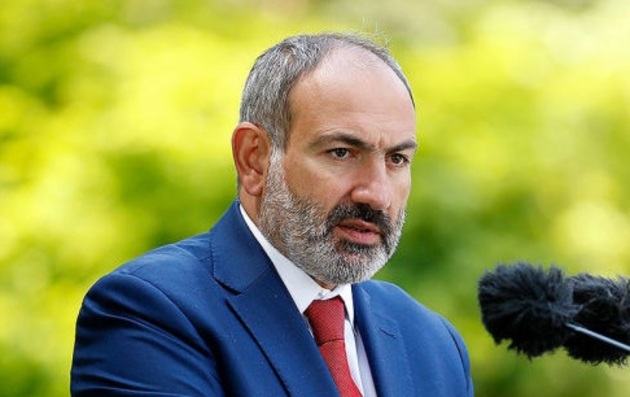The situation on the Armenian-Azerbaijani border remains tense. On May 27, a group of Armenian soldiers was detained by the Azerbaijani Armed Forces while crossing the state border. Baku defined the incident as a sabotage attack by the Armenian military, while Yerevan hastened to announce the capture of the soldiers of the engineering troops, for some reason sent to the zone of imminent confrontation.
This did not prevent the Armenian media outlets from launching a propaganda campaign, supported by all political forces of the republic, without exception, intending to take part in the early parliamentary elections.
The process of the Armenian-Azerbaijani border delimitation on the basis of the Soviet cartographic materials in the presence of experts from the Russian Defense Ministry, apparently, turned out to be beyond the reach of the Armenian political elite. A month after the aggravation of the situation on the border in Syunik and Gegharkunik, Yerevan stated that Azerbaijan was allegedly slowly absorbing the territory of Armenia, while Russia could not do anything about it. Such an openly anti-Russian scenario could be considered fiction, given that it is the Russian peacekeeping mission that monitors the observance of the ceasefire in Karabakh, while simultaneously ensuring the security of Armenia. However, the recently published "Pashinyan’s plan" needs to be examined to address the situation on the border from a completely different angle.
"Pashinyan's plan" is an attempt to absolve oneself of responsibility for resolving issues of national importance. The acting prime minister proposes to withdraw the armed units of the two sides at a safe distance from each other, and place international observers from the Russian Federation or other OSCE Minsk Group co-chairing countries along the border. It is obvious that Yerevan is interested in attracting Western partners to resolve the situation on the border. Pashinyan's proposal was warmly supported by the EU immediately after the announcement at a meeting of the Security Council of the republic. It would seem that the road map for settling the remaining contradictions between Armenia and Azerbaijan was in hand, but the "Karabakh syndrome" prompts Yerevan to turn the border between the republics into something that existed in Karabakh for 30 years.
Pashinyan's modest proposal, which he reserved for the election race, conceals a clear desire to partially revive the activities of the OSCE Minsk Group. Thus, in this way, he, probably, is trying to restore the presence of Western countries in the Armenia-Azerbaijan space of interests. Technically, Pashinyan does not refuse to support Russia, but indirectly presents Armenia as a bargaining chip, neglecting issues of national sovereignty. The occupation of Karabakh could not last forever, therefore, accustomed to speculating on the topic of interstate relations the Armenian political elite intends to turn the border of Syunik and Gegharkunik into another hot spot on the map of the South Caucasus in order to continue looking for the most acceptable foreign policy vector of Armenia's development.
Pashinyan remains loyal to pro-Western political views, trying to dilute Moscow's influence through the Minsk Group co-chairs. This position irritates the Russophile wing of Armenian politics, which fearfully awaits a sharp reaction from Moscow. The first president of Armenia does not hide his fears, believing that Pashinyan's political shortsightedness could provoke a civil war. (See Levon Ter-Petrosyan: June elections may end in civil war. )
Indeed, the last events demonstrate that the acting prime minister does not control the situation at the border. Instead, Pashinyan is preparing for the elections, abusing the fact that all of his current opponents, including his main rival, ex-President Robert Kocharian, are not of any interest neither for Moscow nor for the West. However, if the atmosphere in Armenia continues to be fueled by fear of uncertainty on the border, then the south of the country risks becoming a troubled region, and the country itself may plunge into chaos.






